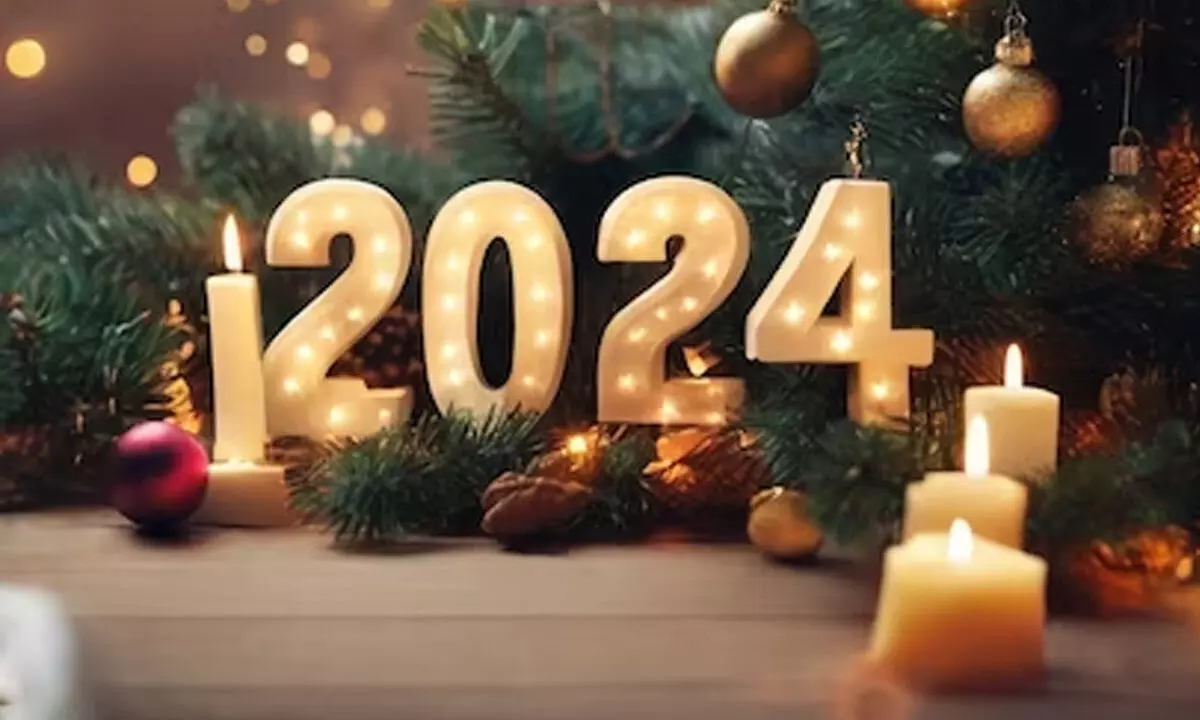New Year 2024: Exploring the Origins, Significance, and Traditions of January 1 Celebrations

As we eagerly await the arrival of the New Year, it's a moment to delve into the reasons behind marking January 1 as the inception of the year.
As we eagerly await the arrival of the New Year, it's a moment to delve into the reasons behind marking January 1 as the inception of the year. With the striking of midnight and the skies ablaze with fireworks, the global community will unite to usher in the New Year on January 1st. Preparations for New Year's Eve festivities are underway, complete with planned parties and carefully chosen attire. On January 1, we bid farewell to 2023 and embrace the promise of a brighter future in 2024. The eve of December 31 sees people gathering with loved ones to revel in the occasion with gifts, sumptuous feasts, and joyous parties. From grand fireworks displays to intimate family moments, New Year traditions encapsulate the spirit of bidding adieu to the old and welcoming the possibilities of the new. The commencement of a new year symbolizes joy, resilience, and optimism for a better future. Let's delve into the origins, history, significance, and traditions surrounding New Year's Day on January 1.
New Year 2024 History: The Evolution of January 1 as New Year
The tradition of observing January 1 as the beginning of the new year dates back to 45 BC. Prior to this, the Roman calendar commenced in March, spanning 355 days. Roman dictator Julius Caesar, upon assuming power, restructured the calendar, designating January 1 as the inaugural day of the year. This change, paying homage to Janus, the Roman god of beginnings with dual faces gazing into the past and future, initially faced slow acceptance in Europe. The advent of Christianity further complicated matters, as December 25, Jesus' birth, gained recognition while January 1 was deemed pagan. It took the intervention of Pope Gregory, altering the Julian calendar to officially recognise January 1 as the new year's commencement, for widespread acceptance.
Additionally, tracing back to ancient Babylon around 2,000 BC, the new year likely originated over 4,000 years ago. The Babylonians celebrated the new year on the first new moon following the vernal equinox, marked by an 11-day celebration named Akitu, featuring unique ceremonies each day.
New Year 2024: Significance and Time-Honoured Traditions
Beyond a mere chronological transition, the onset of a new year signifies a profound opportunity for renewal. Globally, the new year symbolizes fresh beginnings and instils hope, inspiring individuals to set goals and embrace new prospects. New Year's Eve, often extending into the early hours of January 1, witnesses’ festivities worldwide. Revellers partake in consuming foods believed to bring good luck. Customs such as singing songs and witnessing vibrant fireworks further characterise the celebrations. As the New Year heralds’ positive transformations, many people jot down their resolutions for the upcoming year.

















